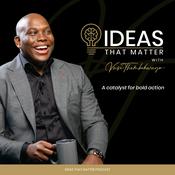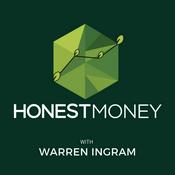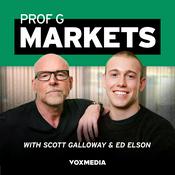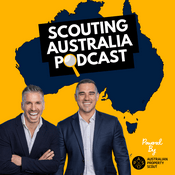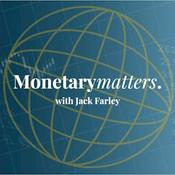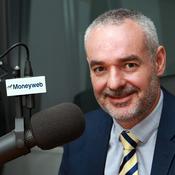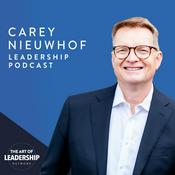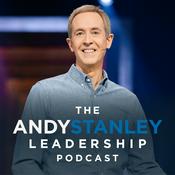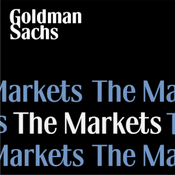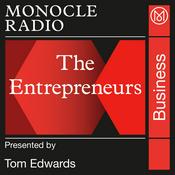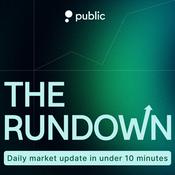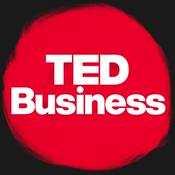162 episodes

Expert advice for navigating challenges, changes, self-doubt
2025/12/17 | 13 mins.
This 2025 compilation episode looks back on key takeaways from CGMA credential holders and other experts featured on the FM podcast in the past year. The discussions focus on AI, skills gaps, leadership, and other topics. What you'll learn from this episode: The potential of AI tools and the value of learning them early. Technology's impact on communication skills. One solution for creating more cohesive teams. Advice for navigating uncertainty and difficult colleagues. The link between leadership and imposter syndrome.

December FM: 2040 outlook, AI visualisation tools, IFRS 18
2025/12/03 | 8 mins.
The latest episode of the podcast provides an overview of content in the December digital edition of FM. Editor-in-chief Oliver Rowe summarises articles that detail the Rise2040 project and other future-focused topics. The episode closes with an explanation of how members can access the December digital edition as well as the issue library. What you'll learn from this episode: The December digital edition's focus on the future. Why IFRS 18 is "more than an incremental update". Details of the article on AI visualisation tools by Liam Bastick, FCMA, CGMA. Advice for finance professionals who have an eye on the C-suite.

Balancing projects and daily work: 3 time-saving strategies
2025/11/19 | 19 mins.
Change consultant and executive coach Nicola Hopes shares several tips and tricks for crafting intentional business projects that can facilitate meaningful changes for organisations. Hopes explains the fundamental questions that help ensure projects achieve intended outcomes, the importance of knowing what good looks like throughout the process, and how leaders can better balance project demands alongside their day-to-day responsibilities. "I've seen lots of organisations passionate about doing a great project," Hopes said. "And, at the end of it, what's delivered doesn't quite solve the problem they were trying to solve, or it doesn't quite realise the opportunity, because they just weren't clear enough about what good looks like. Unless you've painted that picture really clearly, you don't know how to navigate the problems as you go through." Resource: Nicola Hopes' UK & Ireland ENGAGE slides. What you'll learn from this episode: Crucial areas to understand before taking on a business project. How to improve your approach when pitching initiatives to stakeholders. Digital tools that can help organise key information. Strategies for improving interpersonal skills. How leaders can help stakeholders find common ground during disagreements. Three ways leaders can save time and resources on projects.

Learn fast, learn often: Lessons from two finance leaders
2025/11/05 | 15 mins.
In celebration of CGMA Week, the FM podcast welcomed two CGMA designation holders who recently spoke at UK & Ireland ENGAGE to discuss the lessons they've learned throughout their careers, how their mindset has shifted over the years, and the advice they would give to finance professionals navigating opportunities in a challenging era defined by potential and uncertainty. Simon Ritchie, ACMA, CGMA, founder and CEO of Blox Software, and Olcay Yilmaz, FCMA, CGMA, finance director–Rail Infrastructure at Siemens, explain the importance of continuous learning in a time when knowledge has a faster expiration date for finance professionals. Ritchie and Yilmaz highlight the ways finance professionals can position emerging technologies as innovation drivers in the finance function and how to fully embrace those tools in their roles. CGMA Week is a global celebration designed to showcase the value, pride, and achievements associated with the CGMA designation. What you'll learn from this episode: How an early start in technology can prevent finance professionals from working "backwards". The importance of learning to love learning — and why it pays off. Key areas Yilmaz and Ritchie expect AI to optimise within the finance function. Strategies for harnessing structure and embracing change through uncertainty. Their advice for professionals preoccupied with career ladders and titles. Tips for professionals struggling to map their learning and growth journeys.

3 common types of difficult people — and how to work better with them
2025/10/22 | 18 mins.
Executive coach and author Nick Robinson illuminates the challenging traits of work colleagues and shares strategies from his book — The 9 Types of Difficult People: How to Spot Them and Quickly Improve Working Relationships — that professionals can employ to improve relationships on the job. Robinson, a speaker at UK & Ireland ENGAGE earlier this month, explores the interplay between organisational pressures, psychological stressors, power dynamics, and how those factors can influence the development of traits and behaviours that make people difficult to work with. He also shares strategies managers and professionals can explore to help get to the crux of performance issues, improve communication skills, and gain a deeper understanding of peers. "When you ask a difficult person why they're doing what they do, they don't think they're difficult," Robinson said. "They're trying to do something that they think is right." What you'll learn from this episode: Four pressures that can negatively affect our ability to work with others. Three common types of difficult people in the workplace. Advice for managers and employees to navigate challenging relationships and dynamics. Steps for surviving a difficult boss. Tips for "unlearning" bad habits that make you appear more difficult to work with.
More Business podcasts
Trending Business podcasts
About Financial Management (FM) magazine
Listen to Financial Management (FM) magazine, The Money Show and many other podcasts from around the world with the radio.net app

Get the free radio.net app
- Stations and podcasts to bookmark
- Stream via Wi-Fi or Bluetooth
- Supports Carplay & Android Auto
- Many other app features
Get the free radio.net app
- Stations and podcasts to bookmark
- Stream via Wi-Fi or Bluetooth
- Supports Carplay & Android Auto
- Many other app features


Financial Management (FM) magazine
download the app,
start listening.

